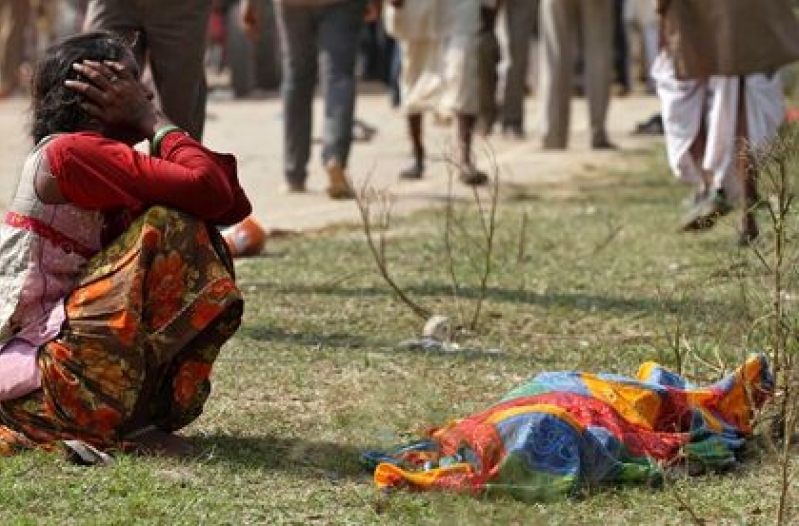
A stampede outside a temple in central India over the weekend has killed over 115 people, and more than 100 others are injured, authorities said, according to AFP.
The devastating event happened Sunday on a bridge over the Sindh River in Ratangarh, where pilgrims were headed to a temple for a Hindu Durga Puja festival that honors the female Hindu deity Durga.
A rumors spread that the 550-yard long bridge was about to collapse, causing the roughly 25,000 people on the bridge to panic and stampede, according to CNN.
Many people jumped or were pushed off the bridge into the river, said a local deputy police inspector.
R.S. Gupta, the chief medical officer of Datia district, where the incident happened, said 29 of the dead were children below the age of 12, the Wall Street Journal reported.
India has had a number of deadly stampedes. In February, more than 35 people died in a stampede at a railway station in the northern Indian city of Allahabad during the Kumbh Mela, a Hindu festival attended by tens of millions of people.
In 2008, around 200 people were killed in a stampede at a temple in Jodhpur, western part of India. That same year, another temple stampede in Himachal Pradesh killed more than 150.
Reflecting on the stampede, we can see a nation of people running and chasing after idols of self-interest. During times of crisis, the adherents would only care for their own welfares.Some asks why these tragedies keep happening again and again, but when the people are only concerned about their own self-interests and neglect the values and dignity of other human beings, it is no surprise that these events keep happening.
For Christians, Jesus is our savior, who died in place of sinners and covered our transgressions with His own blood - a complete display of selflessness. For those who trust in the Lord by faith, their sins have been paid for by the blood of the lamb, Christ Jesus, by grace. Thus, they do not need to keep going back to temple to offer endless sacrifices.
Rather, they go to the temple or church (in today's context) to offer up worship and thanksgiving, where love holds each other together. And one does not look only to his interest, but that of others before oneself, emulating the love and sacrifice revealed on the cross.







